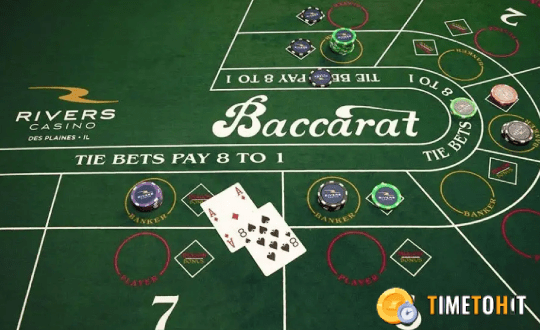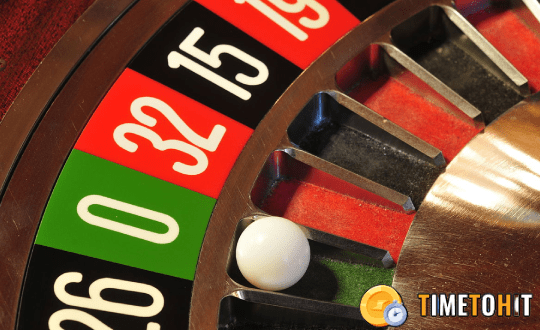It’s a fact of life that there are some not-very-nice people out there. People who are intent on making a quick buck by cheating others out of their hard-earned cash. It’s also a fact that some of those unscrupulous individuals use bogus casino sites to get what they want.
The online gambling industry is subject to scrutiny at every turn, from licensing regulators in the main but also from sites like RightCasino and others who keep a close eye on how online casinos are run. We do our best to constantly update our site so that only reputable online casinos make the cut and quickly blacklisting casinos that do not.
Being able to spot a rogue casino is a valuable skill for a player and it might save you trouble (and cash) down the line. Here are our tips on identifying dodgy casino sites for yourself.
What makes a rogue casino?
There are a number of factors that contribute to a casino being labelled as rogue and sometimes, the really brazen sites commit a multitude of these sins at once.
A big no-no is a lack of payment. Some casinos stipulate, in their terms and conditions, how long players might need to wait to have their winnings withdrawn, with some setting that period at 30 days. That’s all well and good – a player knows what to expect once they read the terms and conditions (which they always should!), and after all, they consented to these terms when they decided to play at the casino.
The issue arises when a withdrawal never happens. Delays upon delays which leave a player frustrated and without what is rightfully theirs. Keep an eye out for this red flag when visiting player forums. If you spot several similar complaints of non-payment, it might be worth backing away from that particular casino.
We play casino games on the premise that these games are fair and random, whether they are slots, rounds of blackjack or poker. Reputable casinos will ensure that all their games are audited and certified by external, independent testers. Rogue casinos, however, have been known to employ dodgy tactics and even dodgier software to rig games in their favour, milking unsuspecting players who have no idea that the odds are against them every time.
Spotting this misbehaviour is a little tricky as an individual player. It takes specialised testing to prove that a game is, conclusively, unfair. Hitting a few losing streaks in a row does not mean the game you are playing has been tampered with, as much as we’d all like to think that to save face.
Many casinos will proudly display their fairness certifications so take a look at the footer of the site, where you can see the logos of fairness testing organisations like eCOGRA. Player-centered sites like RightCasino rely on data provided by such testing companies to determine whether a casino is not playing fair.
Another way casinos can get themselves blacklist is by partaking in practices that attempt to exploit or harass players. Licensing authorities like the UKGC have very strict rules about how casinos handle players but that doesn’t mean that rogue sites won’t try to get away with shady behaviour.
Things like false advertising about casino bonuses, spamming players with marketing material and intentionally obfuscating their terms and conditions or making them downright impossible to find are all actions that can and do get casinos blacklisted. This kind of behaviour is not just annoying but can, in some cases, be considered illegal, especially when children or vulnerable people can fall prey to these sorts of aggressive tactics.
Rogue casino checklist
Now that you are armed with this information, we have put together a list that you can follow if you suspect a casino might be sketchy.
Check the license
So this casino says it is licensed by the UKGC or the MGA or another authority but you are not convinced. Head over to the website of the licensing body in question and take a look.
All of them maintain public databases of their license holders so it’s just a matter of finding the company name, usually in the footer of the casino site, and typing it into this database.
If it doesn’t appear to be licensed by that authority, walk away.
Do a little digging
If you’re playing at an online casino, then you are currently using one of the most powerful tools known to man – the internet. Want to dig up the dirt on a casino? Use a search engine and type in the casino’s name followed by the word ‘complaints’.
See what turns up – if a lot of people are complaining about the same thing (particularly something important like non-payment or unfair account freezing), those players might be onto something and your money would be better spent elsewhere.
Watch for little details
Some casino operators want the cash without the effort and will stoop as low as ripping off other, respectable casinos. If you spot artwork that features another casino’s name or mascot, then you might be looking at content theft.
Really sharp players can also sometimes catch casinos who have stolen text from other sites, usually because the thief was not particularly meticulous and left in a reference to the original site somewhere.
While content theft is not directly related to the gambling experience, it does speak to the kind of operator in charge of that casino. Do you really want to play somewhere that can’t even be bothered to write its own text? Nah, we didn’t think so.
Scour the terms and conditions
Yes, we know that literally anything is more fun than reading casino terms and conditions but making this a habit will help you avoid problems while you play.
Reading the T&Cs is particularly important if you suspect a casino may not be 100% kosher. Casinos that use vague terminology to describe the extent of their capabilities or ones that leave out really important information should be questioned at the very least or avoided entirely.
Test the service
Here we mean the customer support service. Shady casino sites often don’t really want to put the effort or funds into maintaining a support service – they’re only after the money after all, player satisfaction be damned.
Ask some basic questions through the live chat or email support functions, questions that even a trainee support agent on their first day at work would be able to answer. Do this during the stated support hours, if they appear anywhere, so you can be sure that someone is meant to be available.
If your simple questions are poorly answered or, after 24 hours, not answered at all, you can safely assume that the casino has some pretty large holes in its understanding of the customer experience. Approach with caution.
Remember, if you get a bad feeling about a casino and the site seems to pass this little test, don’t be afraid to walk away. There are plenty of first-rate, player-focused casinos out there that have a lot to offer. If you are not completely convinced about a casino, move on and save yourself the trouble.

 United Kingdom
United Kingdom
 Germany
Germany
 Finland
Finland
 Norway
Norway
 Canada
Canada
 Ireland
Ireland














